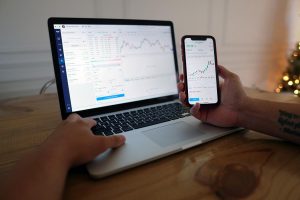Foreign institutional investors (FIIs) sold shares worth net Rs 2,584.97 crore, while domestic institutional investors (DIIs) bought shares worth net Rs 2,605.81 crore in the Indian equity market on December 7, as per provisional data available on the NSE.
Also Read| Trade Setup: Top 15 things to know before market opens on December 8, 2021
In the month of November, FIIs sold shares worth a net Rs 39,901.92 crore while DIIs bought shares worth a net Rs 30,560.27 crore.
Sensex rose 886.51 points or 1.56% to 57,633.65 and the Nifty was up by 264.45 points or 1.56% to 17,176.70 in the previous session. The BSE Sensex touched high and low of 57,905.63 and 56,992.27, respectively and there were 29 stocks advancing against 1 stock declining on the index while The Nifty traded in a range of 17,251.65 and 16,987.75 and there were 45 stocks advancing against 5 stocks declining on the index.
Also Read| Trending Stocks: Nestle, ICICI, Reliance, TCS and others in news today
The broader indices ended in green; the BSE Midcap index rose 1.29%, while the Small cap index was up by 1.14%. The top gaining sectoral indices on the BSE were Metal up by 3.20%, Realty up by 2.58%, Bankex up by 2.54%, Basic Materials up by 2.02%, and PSU up by 1.83%, while there were no losing sectoral indices on the BSE.
Also Read| Fuel Price today: Petrol priced at Rs 95.41, diesel Rs 86.67 in Delhi on December 8
FII stands for ‘foreign institutional investor,’ and refers to an investment fund or an investor who puts their money into a country’s assets while being headquartered outside of it. In India, this is a commonly used term to refer to outside entities contributing to the country’s financial markets by investing. On the other hand, ‘DII’ stands for ‘domestic institutional investors.’ Unlike FIIs, DIIs are investors that invest in the financial assets and securities of the country they are currently residing in.
Also Read| Stocks that should be on your watchlist on Wednesday, December 8, 2021
These investment decisions of both FIIs and DIIs are impacted by political and economic trends. Additionally, both types of investors — foreign institutional investors (FIIs) and domestic institutional investors (DIIs) — can impact the economy’s net investment flows.






